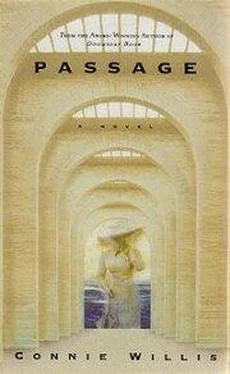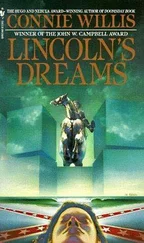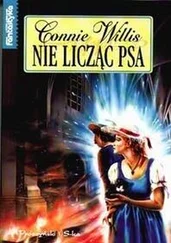“I didn’t. Her ex-husband was the one who signed the release,” Joanna said. “A heart transplant? What are Maisie’s chances?”
“Of surviving a transplant? Pretty good. Mercy’s got a seventy-five percent survival rate, and the rejection stats keep improving all the time. The chances of keeping her alive till a nine-year-old’s heart becomes available? Not nearly as good. Especially when they haven’t found a way of controlling the atrial fib. She’s already coded once,” she said. “But you know that.”
Joanna nodded.
“Well, anyway, I just wanted you to know she was back in. She loves it when you visit her. God, it’s cold out here! My feet are freezing!” she said and headed off toward her Honda.
Joanna found the scraper and started in on the front windshield. The wait for a heart was frequently over a year, even if you were moved to the top of the list, a year during which the damaged heart continued to deteriorate, dragging the lungs and the kidneys and the chances of survival down with it.
And that was for an adult heart. The wait for children was even longer, unless you were lucky. And lucky meant a child drowned in a swimming pool or killed in a car accident or frozen to death in a blizzard. Even then the heart had to be undamaged. And healthy. And a match. And the patient had to be still alive when it got there. Had to have not gone into V-fib again and died.
“If we can figure out how the dying process works,” Richard had said, “that knowledge could eventually be used to revive patients who’ve coded.”
Joanna moved to the back windshield and began brushing snow off the window. Like the elderly woman she had seen from Coma Carl’s window. Heart attack weather, Vielle had said. Dying weather. Disaster weather.
She went back into the hospital and asked the volunteer at the front desk if she could borrow the phone. She asked for Dr. Wright’s extension.
He wasn’t there. “Leave a message at the tone,” the message said. It beeped.
“All right,” Joanna said to the answering machine. “I’ll do it. I’ll work with you on your project.”
“CQD CQD SOS SOS CQD SOS. Come at once. We have struck a berg. CQD OM. Position 41° 40' N, 50° 14'' W. CQD SOS.”
—Wireless message sent by the
Titanic to the
Carpathia
Richard checked his answering machine as soon as he got to work the next morning to see if Joanna had called. “You have twelve messages,” it said reprovingly. Which was what you got for spending all day running around the hospital looking for someone.
He started going through the messages, clicking to the next one as soon as the caller had identified himself. Mrs. Bendix, Mrs. Brightman. “I just wanted to welcome you to Mercy General,” she said in an ancient, quavery voice, “and to tell you how delighted I am that you are researching near-death experiences, or, rather, near-life experiences, for I feel sure your experiments will convince you that what these patients are witnessing is the life and the loved ones we will find again on the other side of the grave. Are you aware that Maurice Mandrake is also at Mercy General? I presume you have read The Light at the End of the Tunnel?”
“Oh, yes,” Richard said to the machine.
“We’re extremely fortunate to have him here,” Mrs. Brightman’s message continued. “I feel sure you two will have a great deal to say to each other.”
“Not if there’s a stairway handy,” he said and hit “next message.” A Mr. Edelman from the National Association of Paranormal Experiences, Mr. Wojakowski.
“Just double-checking about tomorrow,” Mr. Wojakowski said. “Tried to call you before, but couldn’t get through. Reminds me of these telephones we had on the Yorktown for sending messages up to the bridge. You had to wind ’em up with a crank kinda deal, and—”
Mr. Wojakowski, once started on the Yorktown, could go on forever. Richard hit “next message.” The grants office, telling him there was a form he hadn’t turned in. “Wright?” a man’s voice said. Peter Davis, his roommate when they were interns. He never bothered to identify himself. “I suppose you’ve heard,” Davis said. “I can’t believe it about fox, can you? This isn’t some kind of virus, is it? If so, you’d better get vaccinated. Or at least call and warn me before you hit the star. Call me.”
He wondered what that was all about. The only Fox he knew was R. John Foxx, a neuropsychologist who’d been conducting research on anoxia as the cause of near-death experiences. Richard hit “next message” again.
Someone from the International Paranormal Society. Mr. Wojakowski again. “Hiya, Doc. Hadn’t heard from you, so I thought I’d try again. Wanted to make sure it’s two o’clock tomorrow. Or fourteen bells, as we used to say on the Yorktown.”
Amelia Tanaka, saying, “I may be a few minutes late, Dr. Wright. I’ve got an anatomy exam, and last time it took the whole two hours. I’ll be there as soon as I can.” Mr. Suarez, wanting to reschedule his session for tomorrow. Davis again, even more incomprehensible than before. “Forgot to tell you where. Seventeen. Under phantom,” followed by an unrecognizable tuneless humming. Housekeeping.
“Dr. Wright?” Joanna’s voice said. He leaned alertly toward the machine. “This is Joanna Lander. A—Your machine is full,” the answering machine said.
“No,” Richard said. Damn Davis. Damn Mr. Wojakowski, with his endless reminiscences of the Yorktown. The one message he really needed to hear—
He hit “repeat” and played the message again. “Dr. Wright? This is Joanna Lander. A—” Was that sound at the end “I,” as in, “I’d love to work with you on your project.” or a short “a,” as in, “After due consideration, I’ve decided to decline your offer”?
He listened to it again. “Ah,” he decided. As in, “Ah, forget it”? Or, “All my life I’ve wanted a chance at a project like this”? There was no way to tell. He’d have to wait until ten o’clock and see if she showed up. Or try and locate her.
Or not, considering this hospital. That was all he needed, for her to be here waiting and looking at her watch, while he tried to find his way back from the west wing. He picked up the phone and paged her, just on the chance she had her pager switched on, and then hit “repeat” again. There must have been something in her tone that would be a clue as to whether—
“All your messages have been erased,” the machine said. No! He dived at the machine, hit “play.” “You have zero messages.”
Richard grabbed for a prescription pad. “Wojakowski,” he scribbled. “Cartwright Chemical, Davis—” Who else? he thought, trying to reconstruct the messages in his mind. Mrs. Brightman, and then somebody from Northwestern. Geneva Carlson? The phone rang. Richard snatched it up, hoping it was Joanna. “Hello?”
“So, have you seen it?” Davis said.
“Seen what, Davis?”
“The star!”
“What star? You call and leave an undecipherable message—”
“Undecipherable?” Davis said, sounding offended. “It was perfectly clear. I even told you what page the article was on.”
Not a star. The Star, the tabloid newspaper. “What was the article about?” Richard asked.
“Foxx! He’s gone nutcase and announced he’s proved there’s life after death. Wait a minute, I’ve got it here, let me read it to you…” There was a thunking sound as he dropped the phone, and a rattle of paper. “ ‘Dr. R. John Foxx, a respected scientist in the field of near-death research, said, “When I began my research into near-death experiences, I was convinced they were hallucinations caused by oxygen deprivation, but after exhaustive research, I’ve concluded they are a preview of the afterlife. Heaven is real. God is real. I have spoken to Him.” ’ ”
Читать дальше












